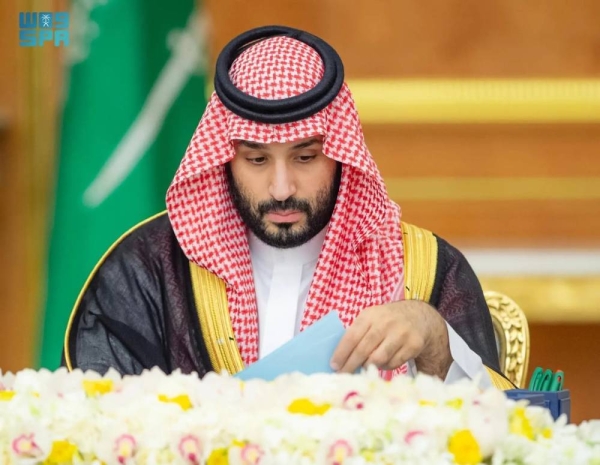Saudi Arabia has made the decision to extend the waiving of fees for expatriates working in the industrial sector until December 31, 2025. This decision was made during the weekly session of the Council of Ministers, which was chaired by Crown Prince Mohammed bin Salman in Jeddah. The initial waiving of fees for expatriate workers in the industrial sector was implemented in 2019 as part of efforts to stimulate industrial investments and create job opportunities for Saudi nationals. The extension of this policy until 2025 is in line with the goals of Saudi Arabia’s Vision 2030.
During the session, the Cabinet was briefed on various international and regional developments, including a message received by Custodian of the Two Holy Mosques King Salman from the president of Senegal. The Crown Prince was also presented with the Leader’s Medal by the Speaker of the Arab Parliament for his role in supporting Arab causes. The Cabinet emphasized the Kingdom’s commitment to cooperation with Arab countries in various fields to enhance security, stability, and sustainable development.
The Council of Ministers also discussed efforts to achieve a ceasefire in Gaza and end the Israeli occupation to restore the legitimate rights of the Palestinian people. On the domestic front, the Cabinet highlighted Saudi Arabia’s initiatives for global sustainability and environmental conservation, which include expanding royal reserves, protecting wildlife, promoting afforestation, and supporting ecotourism. These efforts align with the Kingdom’s commitment to environmental protection and sustainable development.
In addition to discussing international and regional developments, the Cabinet approved several agreements and memoranda of understanding during the session. These include agreements with Uzbekistan for mutual exemption from short-stay visas for diplomatic and special passport holders, cooperation in the cultural field with China, and cooperation in the field of tourism with Switzerland. The Cabinet also authorized the Minister of Education to discuss and sign a draft memorandum of understanding with the Statistical, Economic, and Social Research and Training Centre for Islamic Countries in the field of technical and vocational training.
Furthermore, the Cabinet approved a memorandum of cooperation in the fields of original crimes, terrorism and its financing, and money laundering between the Saudi Public Prosecution and its Yemeni counterpart. These agreements and memoranda of understanding reflect Saudi Arabia’s commitment to strengthening cooperation with international partners in various fields and promoting regional stability and development. The extension of the waiving of fees for expatriates working in the industrial sector until 2025 demonstrates Saudi Arabia’s continued efforts to stimulate economic growth and create job opportunities for Saudi nationals.










